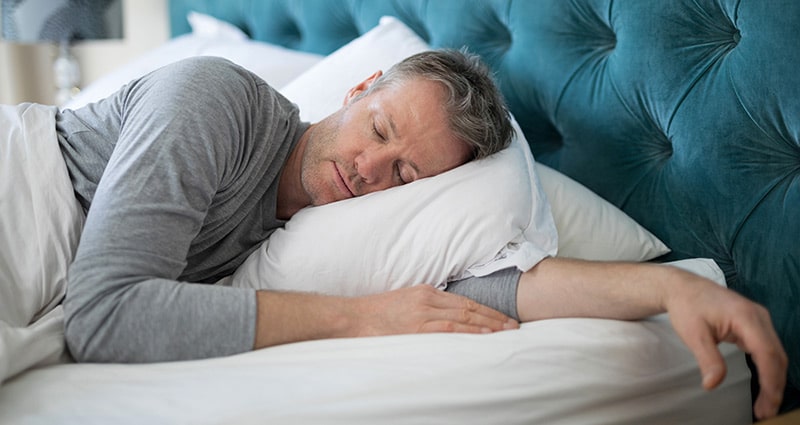Are you getting a good night’s sleep? Most of us struggle to achieve those seven-plus hours recommended for adults by most sleep researchers. In fact, the Centers for Disease Control and Prevention says 1 in 3 Americans don’t get enough of it.
Tyler Boudreaux, MD, of the Our Lady of the Lake Physician Group Men’s Health Center, says one of the biggest concerns he hears from his male patients is trouble with going to sleep or staying asleep all night.
“Poor sleep can cause a number of downstream effects for men, such as elevated blood pressure, fatigue during the day, depression, weight gain, sexual dysfunction and increase in stress levels,” Dr. Boudreaux says. “Problems with sleep can also indicate some underlying conditions, too.”
There’s a correlation between high blood pressure and sleep apnea, for instance. And men with enlarged prostates often don’t get a full night’s sleep because they are making frequent trips to the bathroom.
Dr. Boudreaux has recommended melatonin to some of his patients, which is available in an over-the-counter capsule form. Melatonin is a hormone our bodies naturally create, and it usually increases at night to put us in a relaxed state. As a supplement, it’s relatively safe to use at night but should be avoided during the day because it causes drowsiness. Talk to your own doctor about whether it’s right for you.
Besides supplements, here are some general rules to follow to improve your sleep hygiene:
1. Stick to a routine.
Aim to go to bed at the same time every night so that your body will naturally adjust over time.
2. Avoid distractions in the bedroom.
Watching TV in bed seems to be a normal part of modern society, but our addiction to smartphones has added another glowing blue screen with adverse effects on sleep. Try to shut these off at least an hour before sleep. If that’s too difficult, at least avoid using those screens to answer emails or perform other tasks that might kick your brain into overdrive.
3. Incorporate some relaxation into your nightly ritual.
Try some breathing exercises, meditation, light stretches or listen to some calming music.
4. Avoid alcohol.
A night of heavy drinking can really mess up your sleep, and even though some men swear by a nightcap to help them fall asleep, it doesn’t lead to a full, restful night’s sleep. It also often leads to feelings of fatigue the next day.
5. Avoid late-night eating and drinking caffeine.
Research shows that our metabolism slows at night, right when our bodies would be working extra hard to absorb and digest those late-night carbs. Such a routine could lead to discomfort while trying to fall asleep and excess weight gain. Limit what you eat at least two to three hours before bed. Caffeine should be avoided at least four hours before bed.
6. Talk to your doctor about any ongoing sleep problems.
They could be a sign of a larger issue and are of increasingly more concern as men age. Your doctor can discuss with you a variety of actions to take to help you sleep better.




